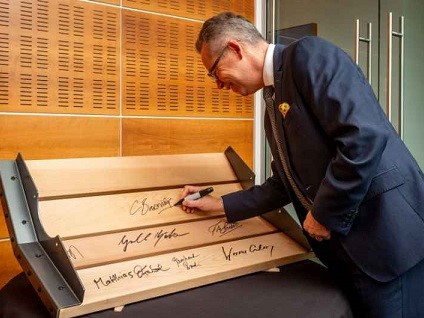Over three-quarters of women working part-time in Birmingham Northfield earn less than the Living Wage – the highest proportion in West Midlands – according to new analysis published by the TUC to mark Part-time Equal Pay Day. Across the region, over two in five part-time women’s jobs pay less than the Living Wage. But TUC analysis of official figures shows that earning less than the Living Wage is the norm for women part-time workers in 13 of the West Midlands’ Parliamentary constituencies.
West Bromwich East (62.3 per cent) and Stourbridge (61.7) are the next worst affected areas in the region. In both these local areas the majority of women working part-time earn less than the Living Wage, which is currently £7.85 an hour.
Stoke on Trent Central has the lowest proportion of women working part-time for less than the Living Wage but even here it is 30.5 per cent.
With women accounting for almost three-quarters of Britain’s six-million strong part-time workforce, the lack of skilled, decently-paid, part-time jobs affects women’s pay and their career prospects far more than it does men, says the TUC.
The TUC is concerned that despite three years of stronger economic growth, many working women still remain trapped in in-work poverty. The TUC says that even though the Chancellor has introduced a minimum wage premium for over 25’s it is still well below the Living Wage and will be undermined by his new cuts to tax credits.
The TUC would like to see more employers paying the Living Wage. This would help tackle the growing scourge of in-work poverty and make big inroads into closing the scandalous 33 per cent part-time pay penalty.
Today (Wednesday 2 September, two-thirds of the way through 2015) is effectively the last day this year that women working part-time get paid. This is because they earn just 67p for every pound earned by men working full-time (which is a pay gap of 33 per cent). One of the main reasons for this huge gender pay divide is the large concentration of women doing low-paid, part-time work, says the TUC.
The TUC also wants to see more well-paid jobs across all sectors and grades advertised on a part-time basis. Recent analysis by the Joseph Rowntree Foundation and the Timewise Foundation found that for every one part-time job vacancy advertised at £20,000 (pro-rata) there were 18 full-time vacancies at this level. Too often women have to take a pay cut and a job beneath their skill, qualifications and experience level in order to be able to work part-time once they have children.
TUC Regional Secretary Lee Barron said:
“Working part-time shouldn’t mean poverty pay, but for lots of women in the West Midlands that is the reality.
“The Living Wage was created to provide workers with a basic standard of living. However, many part-time women in our region earn well below £7.85 an hour and now face being hit by the Chancellor’s cuts to tax credits which will wipe out any gains from his new minimum wage premium.
“Our labour market is failing to deliver for many women. Those looking to work part-time or on a flexible basis are too often restricted to low-level and low-paid positions that do not make the most of their skills. Lots are forced to trade down when they start a family.
“If we don’t create better opportunities and increase wages for part-time staff then women will continue to bear the brunt of in-work poverty.
“We need a recovery that works for the many not just the few.”
















